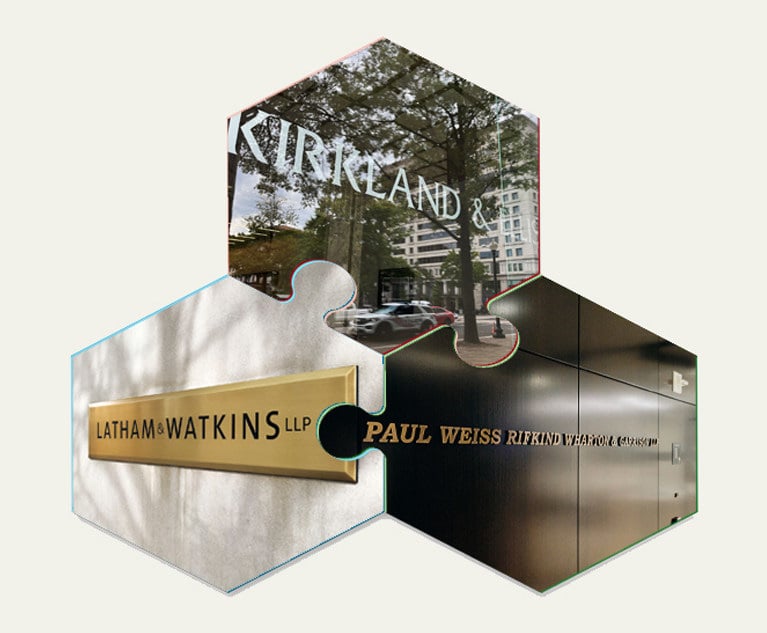9 Ways You're Ticking Me Off: A PR Primer
We've been together a long time, so let me cut to the chase: For such an elite segment, you—lawyers, firms and corporations—are often shockingly unsophisticated in dealing with the press.
March 18, 2019 at 11:51 AM
4 minute read

I know I'm not the most lovable sort. As a columnist, I have some irksome habits, like a penchant for snooping for gossip or pressing people for gory details. I can't help it if I'm a hound dog who just can't stop digging for that tasty bone.
And, so long as it's not something negative about you or your firm, you eat it up. But let's be honest: We need each other. You want me to help enhance your brand, and I need you for my stories.
We have a tricky relationship. Often, when we see each other in social settings, we're like BFFs (yes, I am on hugging terms with quite a few of you). Yet, I know you regard me with caution. How many times do you ask in the course of a conversation at some cocktail party or dinner, “This is off-the-record, right?” (My personal rule: If I'm holding a cocktail, you're safe.)
We've been together a long time, so let me cut to the chase: For such an elite segment, you—lawyers, firms and corporations—are often shockingly unsophisticated in dealing with the press. I'm aghast at how you bungle simple questions or make stupid demands.
 Permit me then to tell you what annoys the hell out of journalists:
Permit me then to tell you what annoys the hell out of journalists:
Don't love me only when you need me. You know who you are. You chase me down in faraway lands to tell me about your firm's most awesome achievement (The win! The women's initiative! The new gym!). But what happens when I ask about something sticky, like that fat rainmaker who's done something naughty or your diversity record? Radio silence.
Don't ask me for a draft of what I'm writing. Obvious, but bears repeating: I am not on your PR team, and you have no veto power. You will have to sweat it out until the story comes out.
Don't cower behind your flack (e.g., the public relations peep). It's always stunning when a hot-shot lawyer will talk to me only in the presence of his PR maven (yes, it's usually a male partner with a female flack). Frankly, I'd be a lot more impressed if you have the balls to talk to me without supervision. Seriously, am I that scary?
But if the flack insists on being present, s/he should zip it. Some of my peers are bothered by flacks sitting in on interviews, but I can tune them out, so long as they are seen but not heard. The only time flacks should interject is to provide factual information.
Don't ask me to cover some boring award. I don't mean to sound dismissive, but I couldn't care less about most industry awards. Nor do I care about those “good citizen” honors either, like how the head of your ERISA group was named “Top Cub Scout Leader of Montclair.”
Don't pitch me an “exclusive” that's not exclusive. Come clean if you're pitching the same story to other media outlets. And for goodness sake, tell me if you're doing so within my own news organization! If someone else at Law.com just featured that dynamic duo you've been selling me, why would you think I'd want the leftovers?
Don't cancel our interview because you got a better gig with the New York Times or the Wall Street Journal. Journalists have fragile egos, particularly the ones who don't work at the Times or the Journal.
Don't try to get me fired by complaining about me to management. This happens, usually under the guise that I'm not being fair or respectful. (Fair I can understand, but respectful?) This is like tattling, which is way beneath your pay scale.
Finally, it's always better to comment—particularly if you feel the story might be unfavorable to you. There's only one way to get your side across: Tell me. I tend to be much more sympathetic if you make an effort. I'm only human.
Contact Vivia Chen at [email protected]. On Twitter: @lawcareerist.
This content has been archived. It is available through our partners, LexisNexis® and Bloomberg Law.
To view this content, please continue to their sites.
Not a Lexis Subscriber?
Subscribe Now
Not a Bloomberg Law Subscriber?
Subscribe Now
NOT FOR REPRINT
© 2025 ALM Global, LLC, All Rights Reserved. Request academic re-use from www.copyright.com. All other uses, submit a request to [email protected]. For more information visit Asset & Logo Licensing.
You Might Like
View All

Letter from Asia: As American Firms Retreat, Will Loyal UK Firms Regain Market Share In Asia?


Change Is Coming With the New Trump Era. For Big Law, Change Is Already Here
6 minute readTrending Stories
Who Got The Work
J. Brugh Lower of Gibbons has entered an appearance for industrial equipment supplier Devco Corporation in a pending trademark infringement lawsuit. The suit, accusing the defendant of selling knock-off Graco products, was filed Dec. 18 in New Jersey District Court by Rivkin Radler on behalf of Graco Inc. and Graco Minnesota. The case, assigned to U.S. District Judge Zahid N. Quraishi, is 3:24-cv-11294, Graco Inc. et al v. Devco Corporation.
Who Got The Work
Rebecca Maller-Stein and Kent A. Yalowitz of Arnold & Porter Kaye Scholer have entered their appearances for Hanaco Venture Capital and its executives, Lior Prosor and David Frankel, in a pending securities lawsuit. The action, filed on Dec. 24 in New York Southern District Court by Zell, Aron & Co. on behalf of Goldeneye Advisors, accuses the defendants of negligently and fraudulently managing the plaintiff's $1 million investment. The case, assigned to U.S. District Judge Vernon S. Broderick, is 1:24-cv-09918, Goldeneye Advisors, LLC v. Hanaco Venture Capital, Ltd. et al.
Who Got The Work
Attorneys from A&O Shearman has stepped in as defense counsel for Toronto-Dominion Bank and other defendants in a pending securities class action. The suit, filed Dec. 11 in New York Southern District Court by Bleichmar Fonti & Auld, accuses the defendants of concealing the bank's 'pervasive' deficiencies in regards to its compliance with the Bank Secrecy Act and the quality of its anti-money laundering controls. The case, assigned to U.S. District Judge Arun Subramanian, is 1:24-cv-09445, Gonzalez v. The Toronto-Dominion Bank et al.
Who Got The Work
Crown Castle International, a Pennsylvania company providing shared communications infrastructure, has turned to Luke D. Wolf of Gordon Rees Scully Mansukhani to fend off a pending breach-of-contract lawsuit. The court action, filed Nov. 25 in Michigan Eastern District Court by Hooper Hathaway PC on behalf of The Town Residences LLC, accuses Crown Castle of failing to transfer approximately $30,000 in utility payments from T-Mobile in breach of a roof-top lease and assignment agreement. The case, assigned to U.S. District Judge Susan K. Declercq, is 2:24-cv-13131, The Town Residences LLC v. T-Mobile US, Inc. et al.
Who Got The Work
Wilfred P. Coronato and Daniel M. Schwartz of McCarter & English have stepped in as defense counsel to Electrolux Home Products Inc. in a pending product liability lawsuit. The court action, filed Nov. 26 in New York Eastern District Court by Poulos Lopiccolo PC and Nagel Rice LLP on behalf of David Stern, alleges that the defendant's refrigerators’ drawers and shelving repeatedly break and fall apart within months after purchase. The case, assigned to U.S. District Judge Joan M. Azrack, is 2:24-cv-08204, Stern v. Electrolux Home Products, Inc.
Featured Firms
Law Offices of Gary Martin Hays & Associates, P.C.
(470) 294-1674
Law Offices of Mark E. Salomone
(857) 444-6468
Smith & Hassler
(713) 739-1250










